Melissa Bachman: 'We're animal lovers' say top female hunters
Olivia Nalos Opre and Mindy Arthurs support lion-killer and argue that they're 'conservationists'
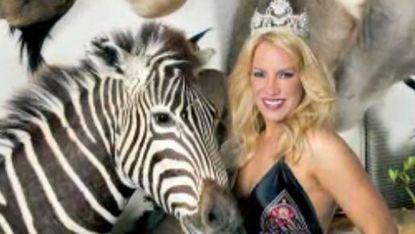
TWO of America's top female hunters have come out in support of Melissa Bachman who sparked global fury by posing next to a lion she shot dead in South Africa.
Former beauty queen Olivia Nalos Opre and Mindy Arthurs, argue that hunting helps to conserve wildlife, the Daily Mirror reports. The pair, who claim to have shot and killed more than 70 species between them, back Bachman to the hilt.
Opre and Arthurs admit they have received "sacks" of mail accusing them of being "self-gratifying killers", the Mirror says. But they insist that shooting animals including lions, rhinos and bears "helps conservation" and they see themselves as "animal lovers".
Subscribe to The Week
Escape your echo chamber. Get the facts behind the news, plus analysis from multiple perspectives.

Sign up for The Week's Free Newsletters
From our morning news briefing to a weekly Good News Newsletter, get the best of The Week delivered directly to your inbox.
From our morning news briefing to a weekly Good News Newsletter, get the best of The Week delivered directly to your inbox.
Arthurs, who is from Arizona, told the paper that the first animal she killed was a bear. She downed it with one shot, a kill that left her feeling "on fire".
"You can be a hunter and a conservationist at the same time," Arthurs tells the paper. "People think you're just killing stuff but if you don't manage a herd then the whole of the herd will die."
She adds: "We are taking care of the big picture. I feel the general public doesn't realise that."
Arthurs says she is hoping to be crowned Extreme Huntress 2014, a competition that is organised by Opre and features a panel of judges that includes Melissa Bachman.
Opre, 36, is a former Mrs America contestant – a US pageant for married women – who has been hunting since she was 16. The Mirror says she has killed more than 65 species across six continents, earning her the world's most prestigious accolade for a female hunter - the Safari Club International Diana Award.
One of Opre's claims to fame is that she was the first woman to shoot a lion in Benin in West Africa.
Both women say they are doing nothing wrong. Arthurs donates meat from the animals she kills to food banks, while Opre says meat from her kills goes to "the indigenous people".
Say Opre: "As hunters, we are providing the indigenous people with the protein they wouldn't have otherwise."
Create an account with the same email registered to your subscription to unlock access.
Sign up for Today's Best Articles in your inbox
A free daily email with the biggest news stories of the day – and the best features from TheWeek.com
-
 Today's political cartoons - April 17, 2024
Today's political cartoons - April 17, 2024Cartoons Wednesday's cartoons - political anxiety, jury sorting hat, and more
By The Week US Published
-
 Arid Gulf states hit with year's worth of rain
Arid Gulf states hit with year's worth of rainSpeed Read The historic flooding in Dubai is tied to climate change
By Peter Weber, The Week US Published
-
 USC under fire for canceling valedictorian speech
USC under fire for canceling valedictorian speechSpeed Read Citing safety concerns, the university canceled a pro-Palestinian student's speech
By Rafi Schwartz, The Week US Published
-
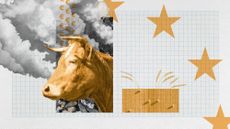 How the EU undermines its climate goals with animal farming subsidies
How the EU undermines its climate goals with animal farming subsidiesUnder the radar Bloc's agricultural policy incentivises carbon-intensive animal farming over growing crops, despite aims to be carbon-neutral
By Harriet Marsden, The Week UK Published
-
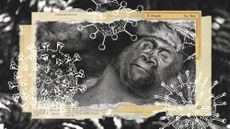 Chimpanzees are dying of human diseases
Chimpanzees are dying of human diseasesUnder the radar Great apes are vulnerable to human pathogens thanks to genetic similarity, increased contact and no immunity
By Harriet Marsden, The Week UK Published
-
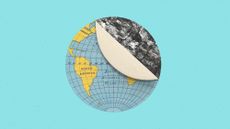 Can the world really wean itself off coal?
Can the world really wean itself off coal?Today's Big Question 'Record' global consumption is set to fall soon but growing demand in China and India could increase tensions
By Harriet Marsden, The Week UK Published
-
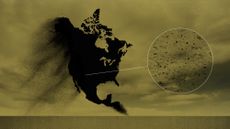 The microplastics hurricanes blowing across North America
The microplastics hurricanes blowing across North AmericaUnder the Radar New research confirms global pervasiveness of harmful microplastic pollution
By The Week Staff Published
-
 What can Cop28 really achieve?
What can Cop28 really achieve?Today's Big Question Climate summit in UAE proves controversial as UN warns world is falling short of global warming targets
By The Week UK Published
-
 A23a: why world's biggest iceberg is on the move
A23a: why world's biggest iceberg is on the moveThe Explainer The mass of ice is four times the size of New York and 'essentially' an island
By Chas Newkey-Burden, The Week UK Published
-
 Libya floods: death toll set to rise with 10,000 reported missing
Libya floods: death toll set to rise with 10,000 reported missingMore than 6,000 people reported dead, with hundreds of bodies still washing ashore
By Arion McNicoll Published
-
 Thousands feared dead in catastrophic Libya flooding
Thousands feared dead in catastrophic Libya floodingSpeed Read A powerful Mediterranean storm pummeled Libya's northeast coast, wiping out entire neighborhoods
By Peter Weber Published